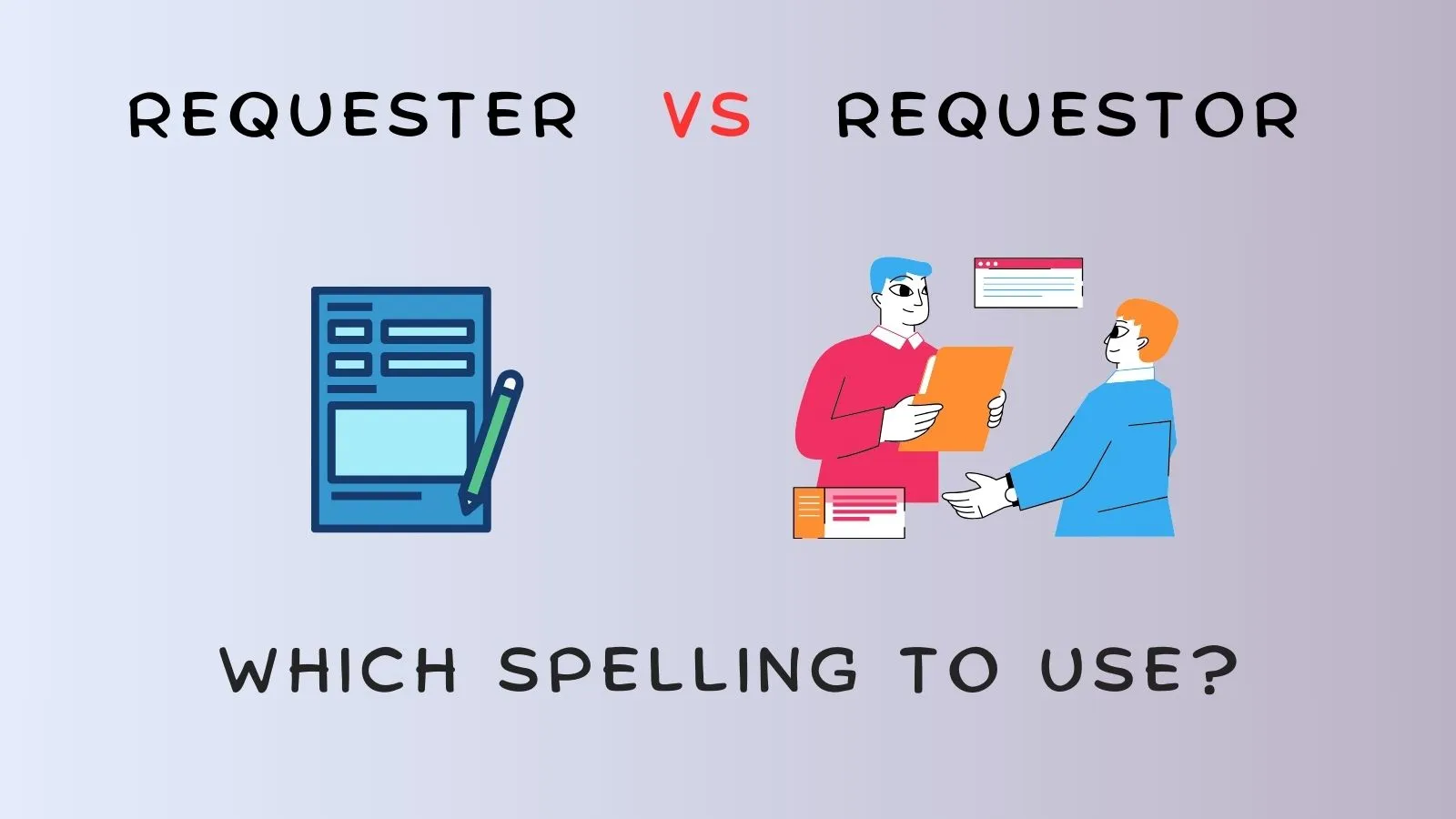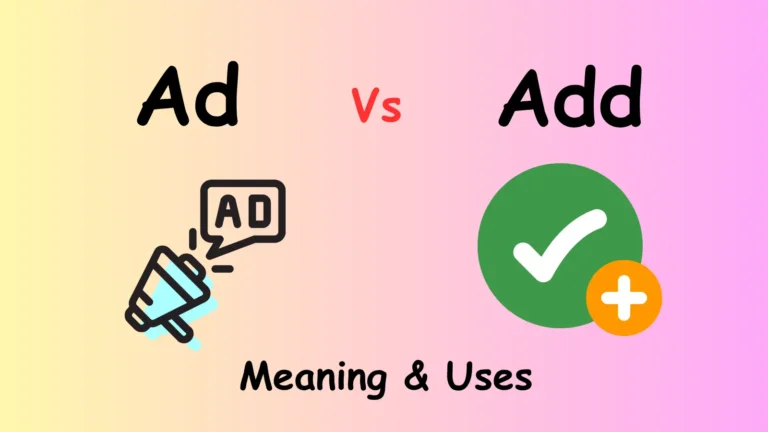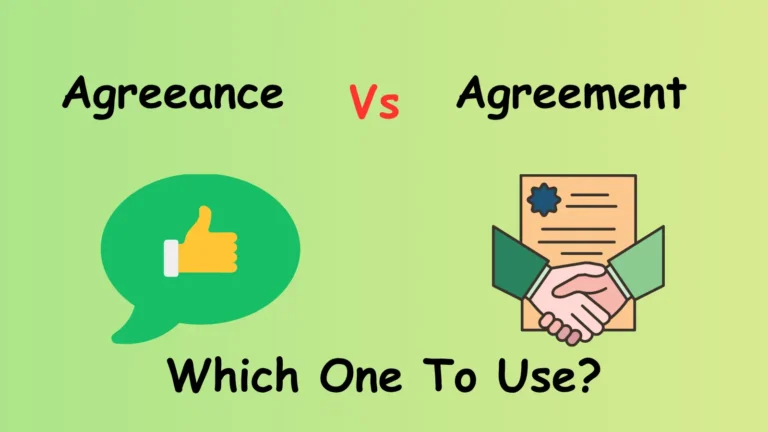Requester or Requestor: Which Spelling to Use?
Both “requester” and “requestor” are correct, but “requester” is the standard spelling in American and British English. It follows the typical “-er” agent noun pattern, while “requestor” uses the less common “-or” suffix. We’ll often see “requester” in academic and publishing contexts, whereas “requestor” appears more in IT, technical, and legal settings. Your choice should align with your industry’s conventions and maintain consistency in your documents. The nuances of these spellings reveal interesting historical and contextual patterns.
What Is The Meaning
Both “requester” and “requestor” refer to a person who makes a request or submits an application for something. We use these terms in various contexts, including business communications, legal documents, and technical fields like information technology. The difference lies not in their meaning but in their spelling preferences, which we’ll examine in more detail.
Requester
The noun “requester” refers to a person, entity, or system that makes a formal or informal request for something. It’s the standard spelling in American and British English, though you’ll often see “requestor” as an alternative.
| Context | Requester | Requestor |
|---|---|---|
| Dictionary Status | Primary spelling | Variant spelling |
| Usage Frequency | More common | Less common |
| Technical Fields | Preferred in IT | Sometimes used in legal |
| Grammar Rules | Follows standard “-er” agent pattern | Uses less common “-or” suffix |
We’ll often see the requester vs requestor debate in professional settings, but the difference between requester and requestor is minimal in meaning—only in spelling preference.
Requestor
“Requestor” serves as an alternative spelling of “requester,” referring to someone who makes or submits a request. This variant is less common than “requester” but remains perfectly acceptable in professional contexts.
When comparing requestor vs requester, we’re fundamentally looking at two valid forms of the same word. The requestor meaning doesn’t differ from its counterpart – both describe the person initiating a request. Is it requestor or requester? Either is correct, though “requester” is generally preferred.
The requestor definition encompasses anyone seeking information, services, or action from another party. While some wonder if requestor is a word, it’s indeed legitimate, just less frequently employed.
Requester Vs Requestor
Confusion often arises when choosing between “requester” and “requestor” in professional and casual writing. We’ll clarify this common dilemma.
Both spellings are technically correct, but “requester” is preferred in most style guides and dictionaries. To define requester: it’s someone who makes a request. The “-er” ending follows standard English formation rules for agent nouns.
“Requestor” uses the less common “-or” suffix, which appears in words like “donor” or “investor.” When deciding between requester or requestor, consider your audience and consistency within your document. American English tends to favor “requester,” while “requestor” occasionally appears in technical or legal contexts.
Origins Of “Requestor” And “Requester
Understanding the etymological roots of these two spellings helps explain their coexistence in modern usage. Both “requester” and “requestor” derive from the verb “request” but follow different suffix patterns.
| Spelling | Origin | Age |
|---|---|---|
| Requester | “-er” Germanic suffix for “one who does” | Older, traditional form |
| Requestor | “-or” Latin-based agent suffix | Newer variation |
The “-er” ending has Germanic roots and traditionally attaches to verbs (like “teach” → “teacher”). The “-or” suffix comes from Latin influence and appears in words like “donor” and “sponsor.” When deciding how to spell requestor vs. requester, understanding these origins helps inform your choice.
Examples In Specific Fields
Let’s examine how these spellings appear across different professional domains. In technology and IT sectors, “requestor” often appears in user interfaces and system documentation, while legal and business contexts typically favor “requester” for formal correspondence.
We’ll find that industry-specific conventions sometimes override general spelling preferences, creating distinct patterns of usage within specialized fields.
Requestor
Industries and specialized fields often adopt specific spelling conventions that may differ from general usage. In IT and technical documentation, we frequently see “requestor” preferred when discussing system users or those initiating service tickets. While both “requesters or requestors” appear in professional contexts, certain sectors have developed preferences.
Enterprise software often defines requestor as the entity initiating a workflow. Legal documentation tends to favor “requestor” for formal consistency. Technical writing style guides may specify “requestor” as standard terminology. Government forms frequently use “requestor” when referencing the applying party.
Requester
Journalism, academia, and publishing consistently favor “requester” in their stylistic conventions. When examining professional texts, we’ll notice that a requester‘s role is clearly defined through this preferred spelling. The meaning remains identical whether writers choose “requester” or “requestor,” but style guides typically recommend the “-er” form.
The Associated Press Stylebook lists “requester” as the standard form.
Academic journals uniformly prefer “requester” in scholarly citations.
Government documents often define “what is a requestor” while using “requester” in official text.
Legal publications standardize on “requester” for consistency in documentation.
Synonyms For The Word “Requester
Finding alternative words for “requester” can enhance your writing and help you avoid repetition. When discussing the requestor vs requestee relationship, precision matters. Common synonyms include: applicant, petitioner, claimant, solicitor, and appellant.
Understanding requestee meaning helps clarify that this person receives requests, while the requestor initiates them. When specifying who’s the requestor in documentation, you might also use “initiator” or “originator.”
What does requestor mean? Simply someone who makes a request. When referring to the requestor’s responsibilities or rights, terms like “inquirer,” “seeker,” or “solicitor” provide useful alternatives while maintaining clarity.
Frequently Asked Questions
Is One Spelling More Common in British Versus American English?
We don’t see a significant British versus American English distinction in “requester” versus “requestor” usage. Both variants appear in both dialects, though “requester” is generally more common across all English-speaking regions.
Do Style Guides Recommend One Spelling Over the Other?
Major style guides don’t strongly favor either “requester” or “requestor.” We’ve found that AP, Chicago, and MLA remain neutral on this spelling choice, though some organizational style guides may specify their preference internally.
How Do Major Dictionaries List These Spelling Variations?
Like rivers flowing together into one sea, major dictionaries embrace both “requester” and “requestor.” We’ll find “requester” listed as primary in most dictionaries, with “requestor” noted as an acceptable variant spelling.
Has the Preferred Spelling Changed Over Time?
We’ve observed that “requester” has consistently been the dominant spelling, though “requestor” has gradually increased in usage since the mid-20th century. Both remain acceptable, with “requester” still maintaining its traditional preference in formal writing.
Are There Pronunciation Differences Between the Two Spellings?
No, there aren’t pronunciation differences between the two spellings. We pronounce both “requester” and “requestor” identically as /rɪˈkwɛstər/. The variation is purely orthographic, not phonetic, regardless of which spelling we choose to use.
Final Verdict
We’ve explored the subtle dance between “requester” and “requestor.” Like choosing between two paths in a forest, neither is wrong—just different routes to the same destination. In most contexts, “requester” remains the traditional choice, while “requestor” has carved its niche in technical fields. What matters isn’t which spelling you select, but that you’re consistent within your document. The language evolves, and so do our choices.
Sourses
Merriam-Webster (Requester Definition & Meaning) , and Collins Dictionary (REQUESTOR definition and meaning | Collins English …)







